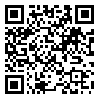Volume 33, Issue 3 (Summer 2025)
Avicenna J Nurs Midwifery Care 2025, 33(3): 186-196 |
Back to browse issues page
Ethics code: IR.ARAKMU.REC.1401.258
Clinical trials code: IRCT20231126060178N1
Download citation:
BibTeX | RIS | EndNote | Medlars | ProCite | Reference Manager | RefWorks
Send citation to:



BibTeX | RIS | EndNote | Medlars | ProCite | Reference Manager | RefWorks
Send citation to:
bagheri F, shamsi M, darvishi cheshmeh soltani R, moradzadeh R, roozbahani N. Investigation of the Effect of Theory Training on Asthma Control Behaviors in Asthmatic Women: A Quasi-Experimental Study. Avicenna J Nurs Midwifery Care 2025; 33 (3) :186-196
URL: http://nmj.umsha.ac.ir/article-1-3230-en.html
URL: http://nmj.umsha.ac.ir/article-1-3230-en.html
Fatemeh Bagheri1 

 , Mohsen Shamsi *2
, Mohsen Shamsi *2 

 , Reza Darvishi cheshmeh soltani3
, Reza Darvishi cheshmeh soltani3 
 , Rahmatollah Moradzadeh4
, Rahmatollah Moradzadeh4 
 , Nasrin Roozbahani5
, Nasrin Roozbahani5 



 , Mohsen Shamsi *2
, Mohsen Shamsi *2 

 , Reza Darvishi cheshmeh soltani3
, Reza Darvishi cheshmeh soltani3 
 , Rahmatollah Moradzadeh4
, Rahmatollah Moradzadeh4 
 , Nasrin Roozbahani5
, Nasrin Roozbahani5 

1- Student Research Committee, School of Health, Arak University of Medical Sciences, Arak, Iran
2- Department of Health Education, School of Health, Arak University of Medical Sciences, Arak, Iran ,mohsen_shamsi1360@yahoo.com
3- Department of Environmental Health Engineering, School of Health, Arak University of Medical Sciences, Arak, Iran
4- Department of Epidemiology, School of Health, Arak University of Medical Sciences, Arak, Iran
5- Department of Health Education, School of Health, Arak University of Medical Sciences, Arak, Iran
2- Department of Health Education, School of Health, Arak University of Medical Sciences, Arak, Iran ,
3- Department of Environmental Health Engineering, School of Health, Arak University of Medical Sciences, Arak, Iran
4- Department of Epidemiology, School of Health, Arak University of Medical Sciences, Arak, Iran
5- Department of Health Education, School of Health, Arak University of Medical Sciences, Arak, Iran
Abstract: (413 Views)
Background and Objective: The prevalence of asthma in adults is about 9%, which is much higher in big cities. The present study was conducted to determine the effect of the educational program based on the Health Belief Model in disease control among women with asthma in Amir-Al-Momenin Teaching Hospital, Arak, Iran.
Materials and Methods: This quasi-experimental study was conducted on 72 female asthmatic patients, who were randomly divided into two experimental and control groups (36 cases per group). The required data were collected using a valid and reliable researcher-made questionnaire that was completed by both groups before training. Subsequently, the experimental group received three 90-min training sessions conducted virtually on social networks for one month. After three months, data were collected and analyzed using SPSS software (version 27).
Results: The mean±age of the case and control groups were 45.39±10.08 and 48.42±10.27, respectively. Three months after the educational intervention, a significant increase was observed in the level of awareness, susceptibility constructs, severity, perceived benefits, and self-efficacy behaviors, compared to the time before the intervention (P<0.001). Moreover, the mean performance score of intervention group increased significantly from 60.16±86.41 before the intervention to 66.16±28.11 after the intervention (P<0.001).
Conclusion: Through active follow-up and efforts to overcome perceived barriers by patients, their skills in asthma control behaviors (avoiding air pollution exposure, adhering to medication, and following dietary guidelines) can be enhanced, leading to a reduction in the incidence of complications.
Materials and Methods: This quasi-experimental study was conducted on 72 female asthmatic patients, who were randomly divided into two experimental and control groups (36 cases per group). The required data were collected using a valid and reliable researcher-made questionnaire that was completed by both groups before training. Subsequently, the experimental group received three 90-min training sessions conducted virtually on social networks for one month. After three months, data were collected and analyzed using SPSS software (version 27).
Results: The mean±age of the case and control groups were 45.39±10.08 and 48.42±10.27, respectively. Three months after the educational intervention, a significant increase was observed in the level of awareness, susceptibility constructs, severity, perceived benefits, and self-efficacy behaviors, compared to the time before the intervention (P<0.001). Moreover, the mean performance score of intervention group increased significantly from 60.16±86.41 before the intervention to 66.16±28.11 after the intervention (P<0.001).
Conclusion: Through active follow-up and efforts to overcome perceived barriers by patients, their skills in asthma control behaviors (avoiding air pollution exposure, adhering to medication, and following dietary guidelines) can be enhanced, leading to a reduction in the incidence of complications.
Type of Study: Original Research |
Subject:
Self-care in chronic diseases
Received: 2025/03/17 | Accepted: 2025/07/15 | Published: 2025/10/11
Received: 2025/03/17 | Accepted: 2025/07/15 | Published: 2025/10/11
Send email to the article author
| Rights and permissions | |
 |
This work is licensed under a Creative Commons Attribution-NonCommercial 4.0 International License. |



 gmail.com
gmail.com